10 Things You Should Know Before You Rent a Self-Storage Unit
Self-storage units are a great way to store your belongings when you don't have the space for them. Whether you're moving, renovating, or just need some extra storage, it's essential to know what you're getting into before renting a unit. This article will discuss 10 things you should know before you rent a storage unit. We'll cover everything from contract terms to price per square foot. So whether you're a first-time storage renter or just looking for some tips, read on for information that will help make your experience smoother!
1. The Contract

The contract for your self-storage unit is essential to understand. Ensure you know how long the contract is for and if there are any penalties for canceling early. Also, be aware of any price increases that may occur during the course of your rental.
Some things to consider when looking over your contract:
- How long is the contract for?
- Are there any penalties for canceling early?
- Are there any price increases during the course of the rental?
- Does the contract automatically renew?
- How does the cancellation process work?
2. External vs. Internal Storage Units
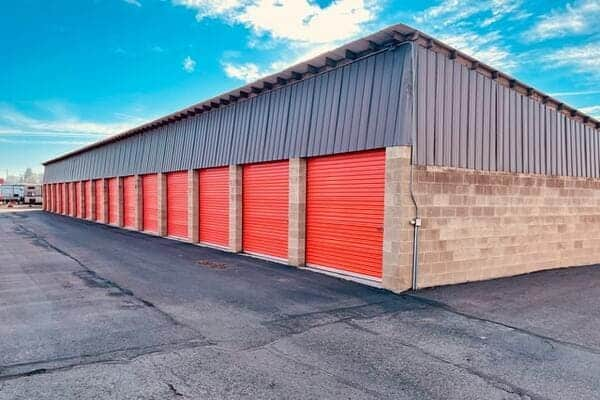
External and internal units are the two main types of self-storage units. Depending on your needs, one may be better suited for you than the other.
External units are not as common as internal units, and they are typically less expensive but are not climate-controlled. If you're storing temperature-sensitive items, external units may not be the best option.
Internal units are climate-controlled and therefore more expensive, but they are more difficult to access. However, they provide an extra level of protection for your belongings. If you're storing valuable or temperature-sensitive items, internal units may be a better option for you.
3. Price Per Square Foot
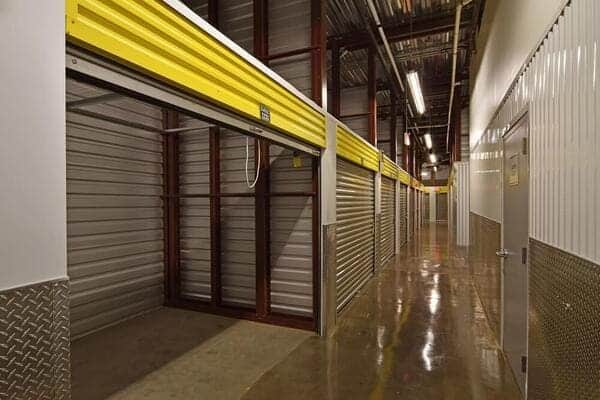
Most units for storage are priced per square foot, so the larger the unit, the more you'll pay. If you're not sure how much space you need, ask the storage facility for help, and they should be able to give you an estimate based on the size and number of items you need to store.
4. Insurance

One important thing to consider when you rent a storage unit is insurance. Your belongings may be covered under your homeowner's insurance policy, but it's always best to check with your insurer to be sure. If your belongings are not covered, you can purchase storage insurance from most self-storage companies.
Insurance is essential for multiple reasons. First, it protects your belongings in case of damage or theft. Second, it protects you if someone is injured while on the property. Be sure to ask about insurance when you're renting a self-storage unit to be sure your belongings are protected.
5. Access Hours
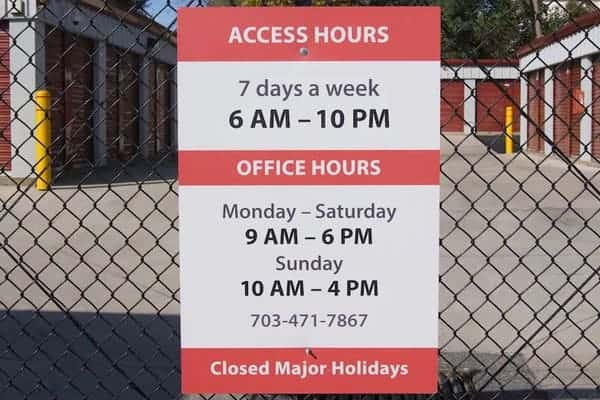
A self-storage facility may have limited access hours, so it's crucial to choose a facility that has hours that work for you. You don't want to be stuck trying to access your unit at night only to find out you can't, so be sure to check the access hours before you rent a storage unit.
Some self-storage facilities also offer 24-hour access, but this is typically more expensive. If you need to access your unit outside of regular business hours, ask about the storage cost and availability of 24-hour access.
6. Security

The self-storage facility you choose should have a security system that makes you feel comfortable storing your belongings there. Be sure to ask about the facility's security features before you rent a storage unit to be sure your belongings are safe.
Some security features to look for are:
- Gated access: Only people with a key or code can enter the facility.
- Security cameras: These can help deter crime and help identify criminals if a crime does occur.
- On-site security: A self-storage facility typically provides this in the form of security guards or patrol services.
- Alarms: This is an additional layer of security that can help protect your belongings.
7. Climate Control
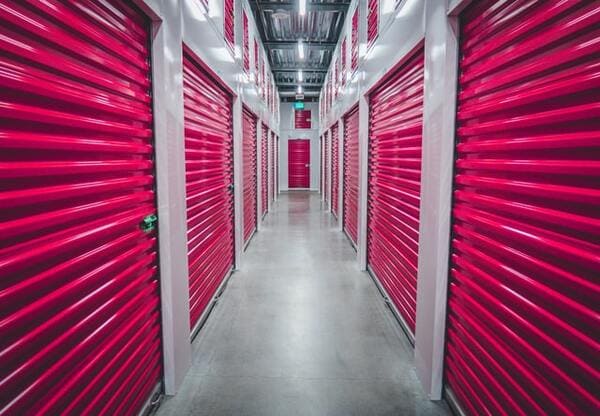
If you're storing items sensitive to temperature or humidity, choose a unit with climate control (most likely an internal storage unit). Everyday items that need climate-controlled storage include:
- Electronics: Computers, TVs, and other electronics can be damaged by extreme heat or cold.
- Furniture: Wood furniture can warp or crack in extreme temperatures.
- Musical instruments: String instruments can go out of tune in extreme heat or cold.
- Photographs: Extreme temperatures can damage photographs.
8. Efficient Packing
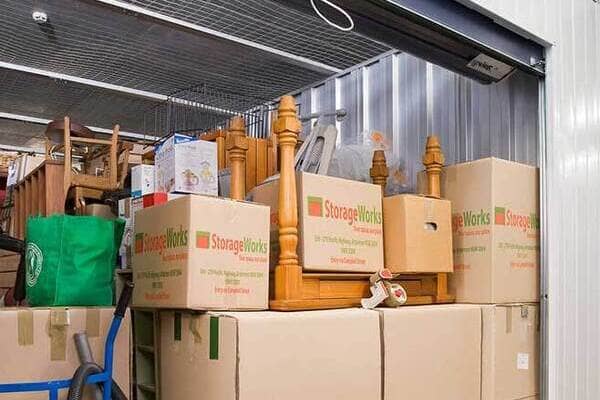
One way to save money when renting a self-storage unit is to pack efficiently. This means using storage containers and moving boxes that are the right size for your belongings and packing them in a way that maximizes space.
Some additional packing tips include:
- Disassemble furniture: This will help you save space and prevent damage.
- Pack heavy items in small boxes: This will make them easier to carry and avoid damage to your belongings.
- Use storage bags: Storage bags can help you save space and keep your belongings organized.
- Label everything: This will help you find items when you need them.
Even better, let us pack for you so you can rent a smaller unit!
9. Item Restrictions
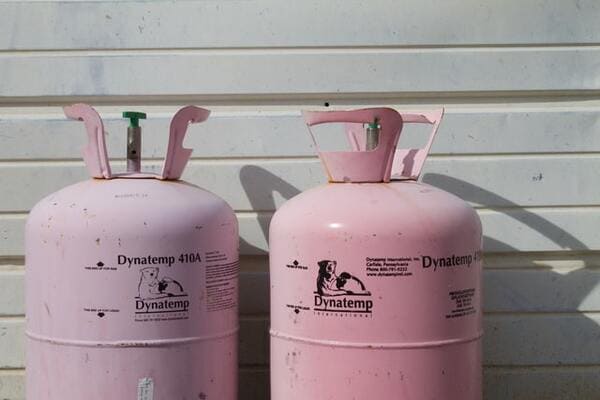
Before you rent a storage unit, be sure to ask about any item restrictions. This is important because some items cannot be stored in self-storage units.
Due to the risk of any potential damage or liability, the following items are typically not allowed to be stored in self-storage units:
- Hazardous materials: This includes gasoline, oil, paint, and chemicals.
- Perishable food: This consists of any food that will spoil if not refrigerated.
- Flammable liquids: This includes items such as propane, kerosene, and paint thinners.
10. Online Reviews
![]()
When you're choosing a self-storage facility, be sure to read reviews. This will give you an idea of what other people have experienced at the facility.
Look for reviews that mention the following:
- Customer service: This is important since there may be times when you need to contact the facility.
- Security: This will give you an idea of how safe the facility is.
- Cleanliness: In general, a clean facility is more likely to be well-maintained.
- Pricing: This will give you an idea of how much the facility charges for their units.
These factors are essential to consider when choosing a self-storage unit. By reading reviews, you can better understand what to expect from a particular facility.
How Moving Labor Can Help
If you're planning to rent a storage unit, Moving Labor can help you with the process. We can provide you with labor services to load and unload your belongings into your storage unit. We also offer packing and unpacking services to help you get organized.
By hiring Moving Labor, you can save time and money on your self-storage rental. The benefits of using our services include:
- Convenience: We can provide you with labor services at a convenient time for you.
- Quality: We only work with experienced and professional laborers.
- Saves time: Our experienced laborers can help you load and unload your belongings quickly.
- Relieves stress: Moving should be an exciting time, not a stressful one. Our goal is to make your move as stress-free as possible by doing the heavy lifting for you.
- Saves money: For those inexperienced in loading and unloading storage units, you could damage your belongings or pay for more space than you need due to inefficient packing. Our team can help you to avoid these costly mistakes.
No matter what your self-storage needs are, Moving Labor can help. Contact us today to get started. We look forward to assisting you with your move!
Related Posts
By accepting you will be accessing a service provided by a third-party external to https://www.movinglabor.com/